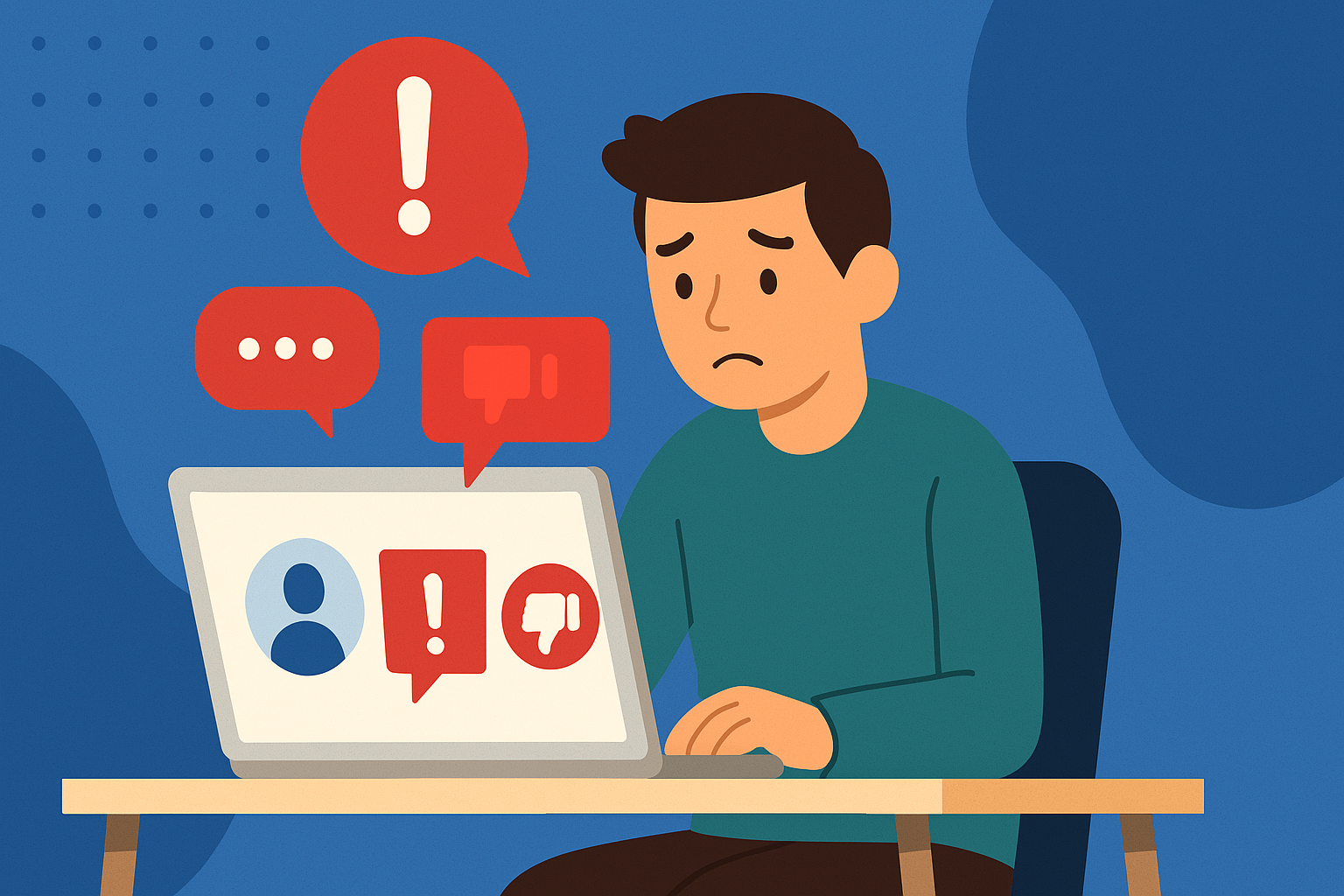Table Of Content
Understanding the Impact of Online Defamation
False and damaging statements published online can have far-reaching effects. These can include job loss, lost clients, mental health issues, and broken relationships. Whether you’re a private individual or a business owner, dealing with online defamation effectively requires swift, strategic action.
Step-by-Step Guide to Dealing With Online Defamation
Step 1: Confirm It’s Defamation
Before acting, determine whether the statement meets the legal threshold for defamation. It must:
- Be a false statement of fact
- Be published to a third party
- Cause reputational or financial harm
- Be made with negligence or malicious intent
Statements that are opinions, satire, or protected speech may not qualify.
Step 2: Document the Evidence
Preserve proof before the content is edited or deleted.
- Take screenshots of the defamatory content
- Record timestamps, URLs, usernames
- Archive the page using Wayback Machine
“A lie can travel halfway around the world while the truth is still putting on its shoes.” — Mark Twain
Step 3: Report the Content to the Platform
Many platforms have internal systems to report harmful content.
Examples:
Use their tools to flag the post and request a takedown.
Step 4: Contact the Publisher or Author
Politely request a retraction or deletion. Sometimes, defamers are unaware of the harm they’ve caused. Sample outreach:
Subject: Request for Removal of Harmful Content
Dear [Name],
I respectfully request you remove the post titled “[Title]” dated [Date], as it contains false and damaging information. I’d appreciate your cooperation in resolving this privately.
Sincerely,
[Your Name]Step 5: Issue a Cease and Desist Letter
A cease and desist letter can serve as formal notice and potential prelude to legal action. Consult an attorney for accuracy and impact. Learn about more Legal Actions to get Content Removed.
Step 6: Consider Legal Action
If damages are substantial and the content persists, filing a defamation lawsuit may be appropriate. Legal remedies can include:
- Compensatory and punitive damages
- Court-ordered content removal
- Injunctions against further publication
Note: Statutes of limitations vary by state—usually between 1 to 3 years.
Step 7: Use SEO to Suppress Defamatory Content
Defamatory pages often rank high on search engines. Rebuild your reputation through:
- Publishing positive blog content
- Optimizing your LinkedIn profile
- Securing interviews or press mentions
For advanced help, enlist experts like Defamation Defenders to bury harmful results and promote truthful content.
How to Remove Defamatory Content from Search Engines
Even after reporting, defamatory content may persist. You can request removal via:
Google Content Removal Tool
- Use the Google Legal Removal Request for:
- Defamatory content
- Court orders
- Personal info abuse
DMCA Takedown Notices
If someone posted copyrighted material along with the defamatory content (like your photo or writing), send a DMCA takedown.
Learn more at Copyright.gov.
Related Content:
Proactive Reputation Management
Don’t wait for disaster to strike. Strengthen your online presence by:
- Claiming social profiles under your name
- Posting authoritative content regularly
- Responding professionally to reviews
- Monitoring mentions with Google Alerts
Working with Defamation Defenders
If content is especially harmful or won’t come down, it’s time to bring in the pros. Defamation Defenders offers:
- Strategic content removal support
- Legal referral services
- SEO suppression campaigns
- Personalized reputation recovery plans
➡️ Contact Defamation Defenders to get a free consultation today, or learn more about our Internet Content Removal Solutions.
FAQ: Removing Defamatory Content Online
Yes. Subpoenas can be issued to platforms to unmask anonymous posters if sufficient evidence is presented.
Yes, posting knowingly false reviews can lead to defamation claims or even FTC violations. Businesses have successfully sued for such acts.
No. Unless the content violates their policies or you present a court order, search engines are not required to remove defamatory pages.
In some jurisdictions, defamation can carry criminal penalties. However, most cases are civil matters.
Removal timelines vary. Voluntary takedowns can be quick, while lawsuits or SEO campaigns may take weeks to months.



